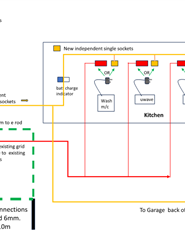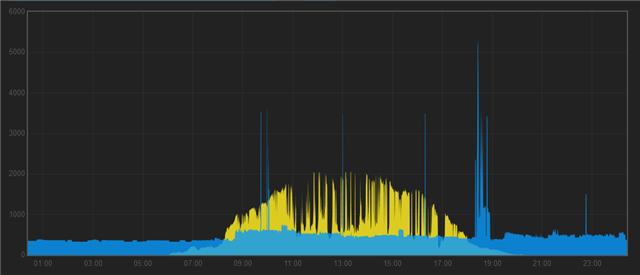Previously posted " On grid /Off grid Domestic kitchen Choice of grid or solar at point of use
Thus kitchen is equipped with both grid and completely independent solar ( inverter ) sockets
Eg Plug your washing machine to grid or solar user choice as opportune. Both are live.together
See attached schematic
The issue is earthing : Care so that earth potential to casing of one appliance plugged to grid is not different to another appliance plugged to off grid supply Easily within reach in a domestic kitchen
Previously advised the earth arrangement as in diagram ( earth rod linked to my incoming grid earth MET ) would suffice Arrangement is similar to UPS systems
So advised tp contact a locally qualified electrician with UPS experience to get final approval / sign off
I cant find one ?? Can anyone put me in touch with such a person locally ? Or is there a directory ? I am in south london close to Morden Northern Line tube
ciao Ms O

